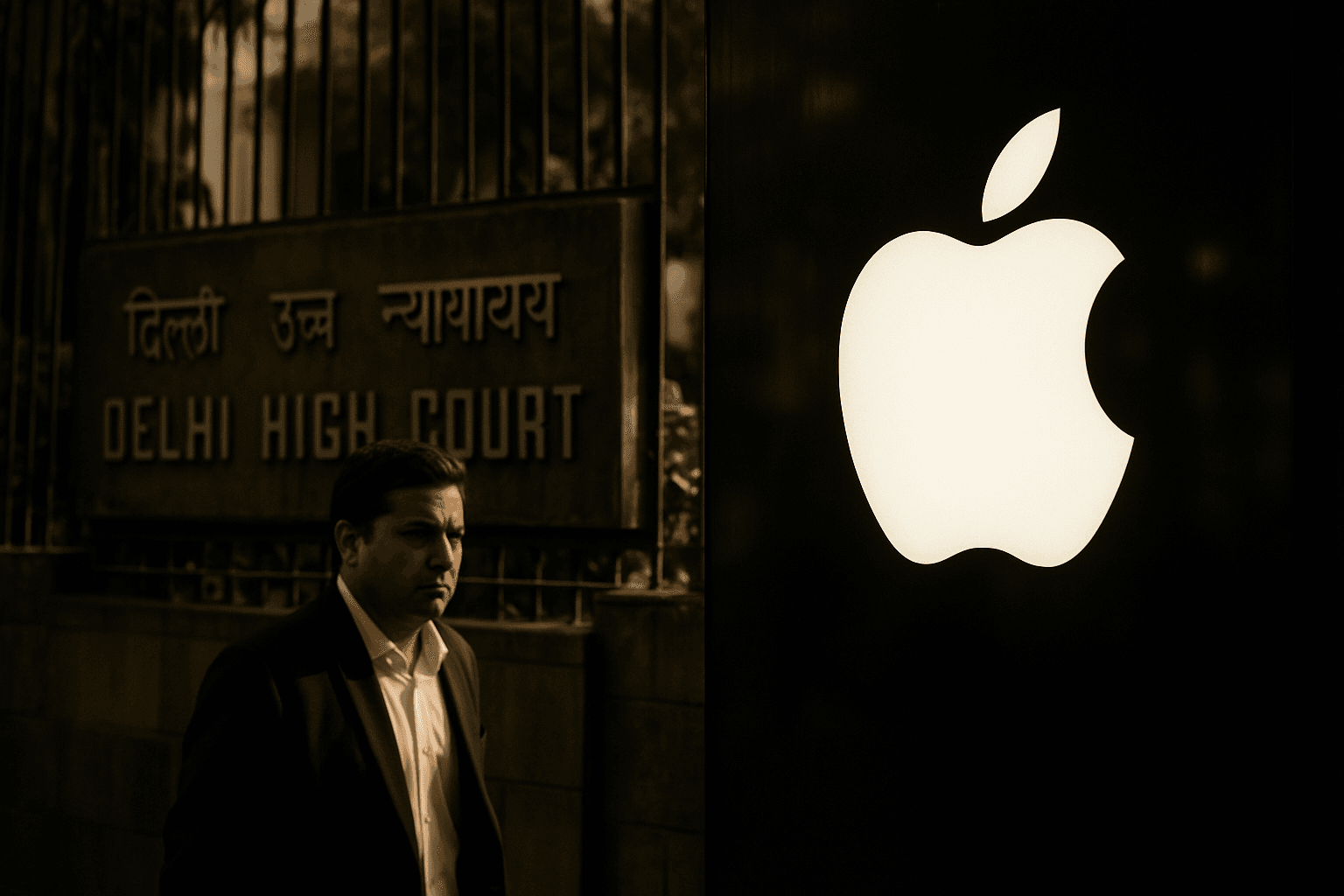Apple Challenges India's Penalty Law, Faces Potential $38 Billion Fine
Apple has filed a constitutional challenge in the Delhi High Court against a 2024 amendment that lets the Competition Commission of India use global turnover when setting antitrust penalties, arguing the change could expose it to a theoretical $38 billion fine. The company seeks to bar retrospective application of the rule after the CCI applied the framework in a separate probe, a clash that could reshape enforcement against global technology firms in India.

Apple has moved to block a sweeping change in Indian competition law, telling the Delhi High Court that a 2024 amendment allowing the Competition Commission of India to use global turnover when calculating fines is arbitrary and grossly disproportionate. The company filed the constitutional challenge on Wednesday, arguing that the provision, if applied retroactively, could expose it to a theoretical maximum penalty of about $38 billion, equal to 10 percent of average global turnover across multiple years.
The filing, reported by Reuters and seen by the paper, seeks a declaration that the amendment is unconstitutional and an order preventing retrospective application of the new penalty framework. Apple said it would be difficult to persuade the court to interfere with clear legislative policy, yet it was forced to seek judicial relief because of the immediate threat posed by the CCI's use of the amended methodology in a separate antitrust probe involving the company.
The case stems from broader scrutiny of Apple's app store practices in India, where regulators have examined the company's rules on app distribution and in-app payments. The CCI has been investigating allegations that Apple unfairly restricted third party app stores and steered developers toward its own payment mechanisms, in a probe that overlaps with a high profile dispute involving Match Group and Tinder. Applying global turnover to penalty calculations would mark a significant increase in potential exposure for multinational firms, amplifying the stakes of ongoing investigations.
Legal experts say the constitutional challenge tests both the limits of regulatory reach and the principle against retrospective penal laws. Indian courts have long balanced deference to legislative intent with protections against arbitrary state action. In contending that global turnover bears little relation to specific conduct in India, Apple frames the amendment as a punitive instrument that could impose penalties far out of proportion to any domestic harm.

For India, the matter is fraught with competing objectives. Authorities have argued that tougher remedies are necessary to police digital markets dominated by foreign platforms and to ensure a level playing field for local developers. Critics of Apple's stance counter that using worldwide revenues to calculate fines would help deter systemic misconduct by multinational companies that derive substantial gains from the Indian market without accepting corresponding regulatory responsibilities.
The legal hearing is scheduled for December 3, 2025. Its outcome will be watched closely by other major technology firms that operate in India, a market whose size and regulatory assertiveness have made it a battleground for digital policy. A ruling in Apple's favor could constrain the CCI's penalty powers and limit retrospective enforcement, while an adverse decision would affirm broader regulatory latitude and potentially expose global companies to much larger fines for conduct deemed anticompetitive in India.
Beyond the immediate legal dispute, the case highlights an emerging tension between national regulators seeking stronger tools to control global platforms and multinational companies seeking predictable, proportionate enforcement. The decision could have consequences for how governments around the world shape penalties for digital market conduct, and for how technology companies weigh compliance and litigation risks in rapidly evolving legal landscapes.


